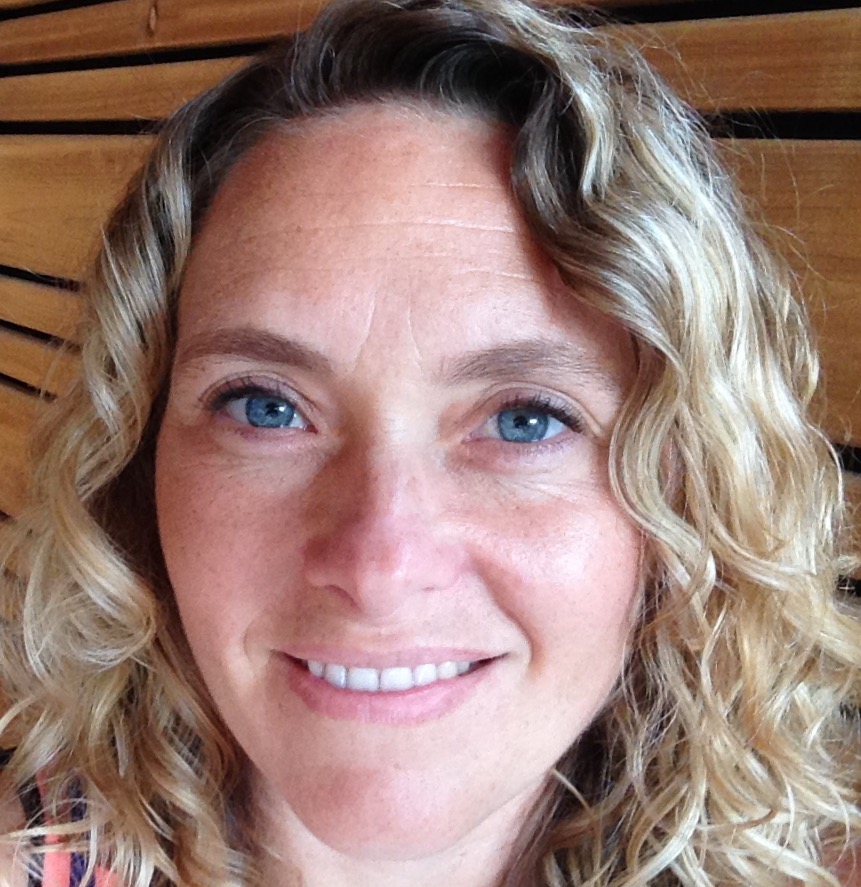How do you respond when someone asks you what you do?

When our Story Intensive teacher Mary Nicholson wrapped her class a few years ago, she told me that I might want to talk to one of her students about getting involved in the program in a bigger way. “I really liked how Tara gave feedback,” Mary said. “She was kind, insightful, and consistent.”
I don’t accept submissions for our school faculty — instead, I wait until I meet someone who comes to the school with the qualities we need. I trust my instincts, and I trust my teachers when they tell me they’ve met someone who might be a teacher, too.
As you might expect, kindness, insight, and consistency can be a rare find in a writing workshop. So I got in touch with Tara, and asked her to teach for us.
I am so glad that I did! Today, it is a pleasure to introduce you to Tara’s writing.
In her Mysterious Middle Draft excerpt, Tara has chosen an interesting narrative angle. The story starts out in a conventional POV, and then it shifts subtly (but directly). This develops the story and the drama in a major way, but without feeling overdone.
I also invite you to read her piece on writing practice. She writes about the sensation that arises in her body when she is writing (I can relate — no matter what draft I’m working on), and how keeping “a bit of awe and wonder in our practice” makes the writing life so much better.
What do you think? Please leave your thoughts for Tara in the comments today, and share your observations with her.
Enjoy!
Love,

How do you respond when someone asks you what you do?
Do you confidently tell them that you are a writer? I hope that you do. It took me quite some time before I owned this role. I felt like I needed some kind of permission slip to really become a “writer.” But eventually, I realized that there is one single, solitary requirement to being a writer, and that is…. that you write.
I remember reading an interview with Junot Diaz in which he was asked how winning the Pulitzer had affected him and he answered, “…as a writer? Not so much. In the end it’s still just me and the blank page, me sitting down trying to figure out how to write this damn thing, you know?” I found this to be extremely comforting, this commonality, this kindred experience. All of the writers that I love reading, writers that inspired me to begin (and continue) writing, they are doing it the same way that I am. Pen in hand, open notebook before them, trusting the words that come out on the page.
I am heartened, at times, by the simplicity of it all — as writers, our job is really just to show up. And listen. And keep showing up. It is important to develop a healthy writing practice that works for you. Everyone’s looks a little different, but whether you write at a desk or in a park, count words or minutes (or neither), type everything onto your laptop or write with a quill and ink, it doesn’t matter. What matters is that it is sustainable and, hopefully, enjoyable for you. (P.S. If you are struggling to develop a consistent and enjoyable practice, The Story Intensive includes a Master Class with Frances Phillips about Finding Flow and Creating Habits for Writers that is absolutely brilliant.)
There is this sensation that arises when creating — a quickening, a little hum of energy, a sensation of joy. It often drives me right out of my chair and makes me pace around my house for a few minutes before I can continue. It’s this, this energy, this joy that motivates me to continue. I’m not suggesting that we aren’t working hard as writers — we most definitely are, and that should be celebrated, too. It’s just that, if we can maintain a bit of awe and wonder in our practice, the going seems a bit easier. So, focus on the joy and maybe, next time you are feeling a little too alone, imagine your favourite writer somewhere, smoothing out a fresh new page in his or her notebook and putting pen to paper. Just like you.
Meet Tara
 Born and raised in Southwestern Ontario, Tara now lives and writes in Toronto, Ontario. When she is not revelling in the joy of first drafts, or trying to avoid second ones, she works as a Paediatric Speech Language Pathologist and spends time with her family of two small people, one big one, and one medium-sized dog.
Born and raised in Southwestern Ontario, Tara now lives and writes in Toronto, Ontario. When she is not revelling in the joy of first drafts, or trying to avoid second ones, she works as a Paediatric Speech Language Pathologist and spends time with her family of two small people, one big one, and one medium-sized dog.
Handwriting or computer?
First drafts and full re-writes always by hand.
Page count or time count?
Sometimes time count, never page count!
First drafts or revision?
I’m in love with first drafts — the blank page is my favourite prompt. I am a “reluctant reviser.”
Writing solo, writing partner, or writing group?
I’ve always written in solitude, but I recently heard Kelly Link speak about her practice of writing in a room with others and I found it intriguing…
Earplugs/quiet or headphones/music?
Quiet, but no earplugs — I am too easily distracted by the sound of my own heartbeat.
Tell us about the excerpt you're sharing today.
This excerpt comes from a story about a character that has been rattling around in my head for some time. Dani is a teenager growing up in a small-town, in perhaps less than ideal circumstances. She maintains an element of innocence and optimism even though the circumstances of her life should have left her with none. Her vision of what is “good” in the world may be slightly skewed, but she does continue to see beauty.
Excerpt from "I Would Have Called You Lexi"
by Tara Bragg
When I lived with Pauline, our apartment always smelled like fruit that had gone bad, which was funny since there was never any fruit inside of it. Mostly just cases and cases of empty bottles of Labatt’s Blue. Actually, there was never a whole lot of any kind of food at Pauline’s — I learned how to cook rice when I was pretty young, though. Every once in a while, she would come home with a loaf of Wonder Bread and we would eat it spread with peanut butter and folded in half, crust first, saving the soft pillow in the middle for last. Usually, I just ate spoonfuls of peanut butter, alone. I wasn’t her first baby, or her last. Just the only one that stuck.
Before she got sick, Nana Bea used to come by on Sundays and tidy up. I remember for a long time I thought she was called Nana B, like there was a Nana A somewhere and Nana B was the second-string grandma. Nana Bea always smelled like Polish sausage when she hugged me — spicy and thick. It was nice. Nana’s house was small and clean with a carpet the colour that oceans are in storybooks. The couch was white with orange flowers and felt scratchy, like sitting on a beach towel with sand on it. It always smelled like something good — strawberries that she was making into jam, or vinegar for bread and butter pickles, or sometimes something she was baking, like windmill cookies. I tried to bake cookies once at Dwayne’s apartment, but I didn’t know any recipes so they turned out like a thin burnt sheet and melted the handle of the pan I cooked them in.
My favourite was when Nana would wash my hair in the sink in the old hairdressing salon she had in her basement. The water was always warm and my eyes wanted to close when she rubbed the shampoo behind my ears. It still smelled like permanent solution down there, even though she had stopped doing ladies’ hair when I was two.
If I knew you were coming, I wouldn’t have taken that money from under Nana’s mattress.
The year I turned nine, Nana Bea started to call me “Pauline” all the time, and kept looking for a cat that I never knew she had. Pretty soon after that, she had to move into an apartment building beside the hospital. Pauline only took me there once, but Nana didn’t know who we were so we left pretty quickly. There was no funeral for Nana Bea.
I still don’t know how to whistle, tie a shoelace, or braid hair. If I knew you were coming, I would have learned to do all that stuff, but I never had anyone to teach me. No-one told me that picking my zits would leave all these little holes in my face. Or how far to go up when you shave your legs. For a long time, my knees had bangs where I stopped shaving. I didn’t wear a bra until I was 15 and my gym teacher handed me one inside a plastic bag in the changeroom after a volleyball lesson.
I would have made sure that you knew all about those things.
Note: These monthly spotlights showcase Mysterious Middle Drafts (MMDs). That means they are somewhere between first drafts and final drafts. This is a challenging stage! Emerging writers bravely share their work-in-progress here for discussion, but this is not a book review or critique: this is a venue for the appreciation of Mysterious Middle Drafts. Thank you for making this writing space safe and supportive.
Discussion:
- What remains with you after reading Tara’s work?
- Can you articulate what’s working in this excerpt — and more importantly, why it’s working?
- How is your own writing practice like Tara’s? How is it different?
Please leave a comment below. And thank you, Tara!

17 comments
Leave a comment